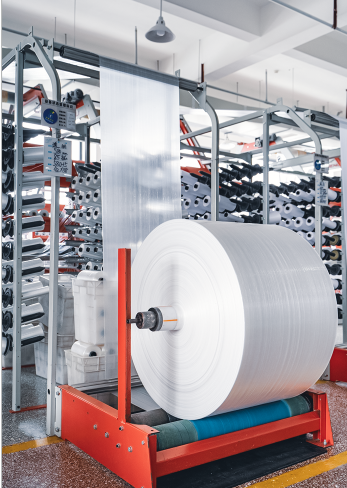When choosing the right material for packaging and transportation, businesses must consider durability, cost-effectiveness, and environmental impact. Two popular options in the market are woven polypropylene bags and jute bags.
While both materials have their unique advantages, woven polypropylene bags offer several benefits that make them a superior choice for many applications.
One of the most significant advantages of woven polypropylene bags over jute bags is their durability.
Woven polypropylene bags are made from synthetic polymers, providing excellent tensile strength and resistance to wear and tear. This makes them ideal for carrying heavy loads, such as agricultural products, construction materials, and industrial goods.
In contrast, jute bags, made from natural plant fibers, are prone to breaking under stress and can degrade quickly when exposed to moisture.
Cost is a crucial factor when selecting packaging materials. Woven polypropylene bags are generally more affordable than jute bags. The production process for polypropylene bags is less labor-intensive and allows for mass production at lower costs.
Additionally, woven polypropylene bags have a longer lifespan, meaning businesses can reuse them multiple times, further reducing the overall cost. On the other hand, jute bags are often more expensive due to the labor required for harvesting and processing the natural fibers.
Another advantage of woven polypropylene bags is their versatility in design and customization. These bags can be easily printed with company logos, branding, and product information, making them an excellent choice for businesses looking to enhance their brand visibility.
Woven polypropylene bags can also be produced in various colors and sizes, tailored to specific customer needs. Jute bags, while customizable to some extent, have limitations in terms of color and print quality due to the natural texture of the fibers.
While both woven polypropylene bags and jute bags have environmental considerations, it’s important to note that woven polypropylene bags are recyclable and can be repurposed into other products, such as furniture and automotive parts. This reduces waste and supports a circular economy.
Although jute bags are biodegradable and made from renewable resources, they require significant water and land for cultivation, which can strain natural resources. Furthermore, the shorter lifespan of jute bags often results in higher waste generation compared to the longer-lasting woven polypropylene bags.
Woven polypropylene bags are highly versatile and used across various industries, including agriculture, construction, retail, and logistics. Their ability to resist moisture and UV rays makes them suitable for outdoor use, protecting the contents from environmental factors.
In contrast, jute bags are more limited in their applications due to their susceptibility to moisture and weaker structural integrity.
In conclusion, while jute bags offer certain environmental benefits and have a natural appeal, woven polypropylene bags provide superior durability, cost-effectiveness, customizability, and versatility.
For businesses looking for reliable and long-lasting packaging solutions, woven polypropylene bags from Xifa are the better choice.




